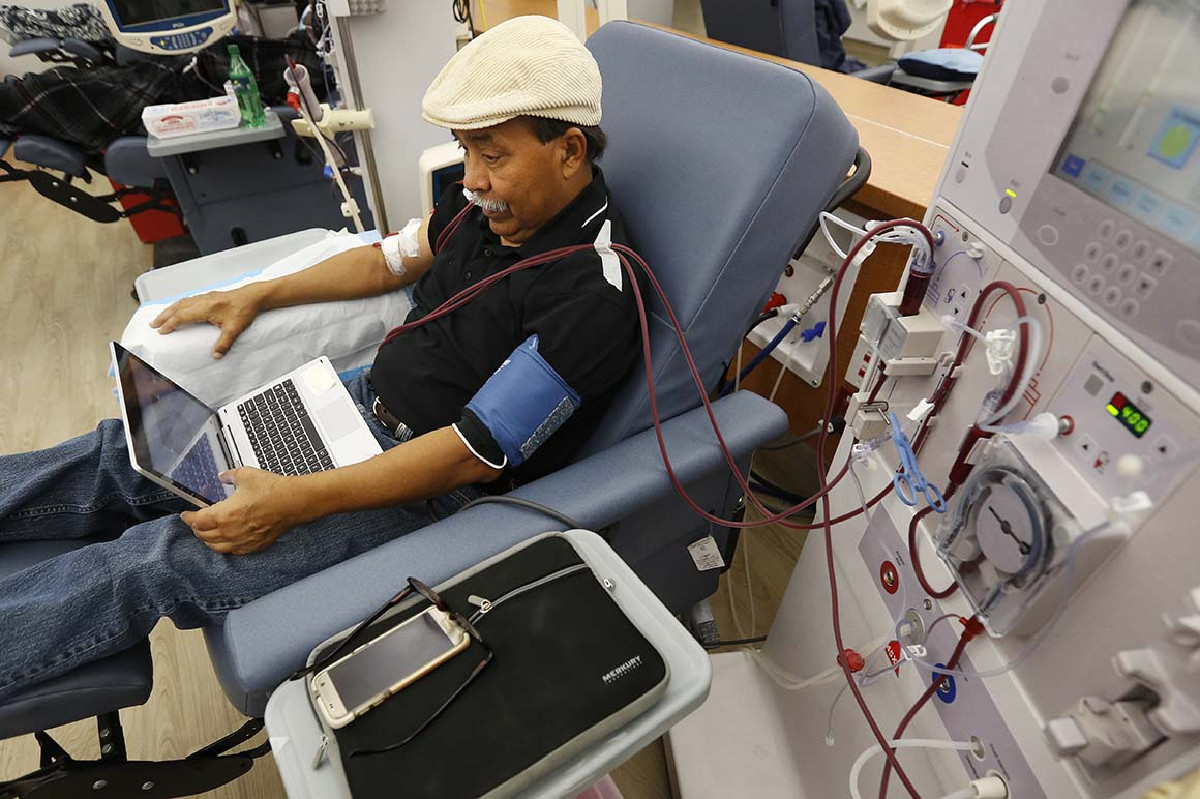doctornephron
New Member
- Joined
- Oct 4, 2018
- Messages
- 8
- Reaction score
- 2
Hi everybody , this forum for applicants for both nephrology and nephrology/critical care fellowship. Good luck for all of you.
Unfortunately, Nephrology has less money and much harder work than hospitalist. Driving to multiple dialysis units and hospitals back and forth during the day can get very tiring and makes you feel like a ups driver.
I totally agree that nephrology job market started to recover . I think the lack of interest in the fellowship application for the last 5 years led to correction of the market by making shortage in candidate compared to job offers.You have to do what you enjoy doing. If you enjoy H&Ps and discharges, transitions in care, supporting families of inpatients, and coordinating care with consultants -- by all means be a hospitalist and skip any subspecialty. But if you want to be a consultant and enjoy Nephrology, the variations in practice might be draw. I practice Nephrology and enjoy having inpatient work, clinic, and dialysis as part of my practice. I enjoy developing long term relationships with my patients. I can't speak for every nephrologist in my area, but most if not all of my partners are very happy with their work. In my state, there is a shortage of nephrologists and every group -- private practice and health system based -- having been hiring. Some have had open jobs for over a year. The job market in Nephrology is improving (at least in our locality) and vastly better than it was 5 years ago. I get headhunter emails frequently.
Correction in job market or not, your ultimate ultimate income as a partner is not increasing. The government is out of money and 60% of your patient volume are medicare patients. Please answer this simple question. Why do you only see nephrologists going back to hospitalist work and never graduates of cards/GI/Pulm-cc/Heme. So you would acknowledge, at the very least, that their is risk in pursuing this specialty that is not inherent in more competitive specialties?
Unfortunately, Nephrology has less money and much harder work than hospitalist. Driving to multiple dialysis units and hospitals back and forth during the day can get very tiring and makes you feel like a ups driver.
I think you expressed your point very well which we all understand it very well and it is valid in many aspect, however could you please don'nt take this forum away of its intended goal which is communicating information regarding application cycle.The only way to save nephrology is to break up the monopoly of big companies like Davita and fresenius (who also engage in corrupt practices like opening up fake charities that help pay for dialysis patients to buy private insurance since it pays many times more than Medicare to the dialysis company and after the ACA, it is illegal for private insurers to reject dialysis patients) breaking them up and making a law that only doctors can open up/own dialysis units so nephrologists themselves can take charge of the dialysis units and the stranglehold these companies have over the ASN resulting in the ballooning of nephrology fellowship seats all over the country in the last two decades for no other reason than to oversaturate the market and drive down wages so the stockholders of these companies can make an obscene amount of profit on the backs of nephrologists working them as cheap slave labour can be stopped. This of course will never happen in a million years.
Again not the place...this is an o Trevor’s threadI am not a nephrology fellow, but I can tell you a significant % of the hospitalists/ED doctors moonlighting at my residency were previous graduate nephrology fellows.
Something cannot be right in the specialty if such a large proportion of fellowship trained doctors are choosing to do something else rather than nephrology...

 www.shemd.org
www.shemd.org
YesSo are the invites to come check out the campus and faculty interview invitations?
Can you elaborate more on why to stay away from methodist ?Anyone considering Houston, here are the programs ranked in order of best to worst:
1. UT Houston
2. Baylor
3. Methodist - do NOT do your fellowship here.
Best of luck to you all! Don’t worry about the doom and gloom. In major cities the starting salary is about 200k with wRVU incentives. If you don’t care where you work, I’ve seen offers up to 450k (Georgia).
yes NW and Uchic 2 weeks agoanyone hear from Chicago programs?
A different fellowship program or a different fellowship entirely?If I were in your shoes right now, here's what would be on my mind:
1.) Procedures. I hated them during medical school. I hated them during residency. I hated them during fellowship. I probably hated them when I was still in the womb. I still hate them now and thankfully I don't have to do them much anymore. Many places have robust interventional radiology and procedural teams nowadays. You probably think the right answer at all of these programs is "more procedures more more more, more experience yaaay etc." If your idea of a good time is getting paged about new consults after already seeing 30 people that day WHILE waiting for the biopsy patient's BP to come down low enough to start the biopsy but then oh yeah the radiologist just stepped out too... Are you OK if that happens weekly? (you might be). You'll need to complete a minimum for biopsies, dialysis catheters etc., and you SHOULD have to do that... but in the end, if you are not planning on a career in interventional, you should look to minimize this burden for yourself.
2.) Call / Intensity. With so much outcry over nephrology wellness and lifestyle, I fear the pendulum is already swinging back in the wrong direction when it comes to training. Year 1 and part of Year 2 was brutal for me but looking back, the intense demands of call and heavy patient census loads gave me a backbone, and simulated the variability I'd encounter in the real world. Sure, a relatively cush schedule (becoming the norm, it seems) might make your next 2 or 3 years a lot nicer, but I might be more hesistant to want to hire you as a result.
3.) Career Outcomes. What do the grads do after they wrap up? Where do they live now? Are they happy with how things turned out? Don't get brainwashed by the program's darling graduate who's now on the faculty and only saying good things about the program (because he/she has to). Use your connections to find out the scoop from graduates who have graduated and moved elsewhere. Are fellows offered faculty positions after graduation? And not just glorified "clinical instructor" roles making a dollar more than a fellow, but legitimate faculty spots with opportunity to grow?
With continued low applicant numbers, the illusion for US MD grads is that programs might bend over backwards for you, and that you can just go anywhere and you're "set". Unfortunately, the potential to get burned and exploited is still very much there. If you're already at a top tier IM residency program, you will need to think carefully before jumping ship and starting all over again at a new place.
Knowing what I know now, I definitely would have chosen a different fellowship program if I had to do it all over again, even if the end result turned out fine for me. Take this process seriously and choose wisely.
A different fellowship program or a different fellowship entirely?

List of combined fellowship I am aware of :
Allegeheny general hospital
Southwestern University of Texas, Dallas
Jersey Shore University hospital
University of Texas , San Antonio
Henry Ford Hospital
University of Tennessee , Knoxville
Stanford University
University of Maryland .
I am a current 2nd year fellow at UConn , during this interview season we have had few qualified candidates , I think UConn program is unfairly overlooked , it is small and with a very dedicated faculty . if anyone is considering applying feel free to Pm me to discuss further
I want to be a nephrologits because of my recidency training In Turkey and my director was one of the nephrologists at that time. I didn't apply UCON but if any position is empthy I want to apply there. I have a couple of nephrology interview now. I am IMG. what do you think i will be apply now or later
thank you for your answer. I have a couple of interview nephrology and other departments for fellowship positions. after this training, I intend to resume IM residency or I had 6 years of training in Turkey some states would give lisance I know.I don't know if you fall into this group. I know of IMGs who couldn't match into an IM residency who were able to get nephrology fellowships. The problem is that after they finish the fellowship, they still couldn't match into residency, and still couldn't practice into medicine in the US. These programs will gladly take your cheap labor. Be careful of exploitation.
in my opinion, I am a physician and I want to help people. labor price isn't important sometimesthank you for your answer. I have a couple of interview nephrology and other departments for fellowship positions. after this training, I intend to resume IM residency or I had 6 years of training in Turkey some states would give lisance I know.
next two days I have an interview after I will try to apply but I wonder it, can I apply now this program or will I wait for soapApply and let me know so I can let the PD know . If you apply please PM with your info. Cant guarantee if a position will be available after the match
Hello,
I need help deciding which programs I am going to interview at, so many intimations and its impossible to go to all of them.
I don't care about locations, because I'm willing to move to a different state (currently living in NY)
So help me making my top 10 from the following programs:
- Jackson Memorial hospital (Miami)
- Cleveland Clinic Florida
- Stony brook (NY)
- Boston university
- Mount Sinai (NYC)
- Montefiore (NY)
- Hoftra/Northwell NY
- Lenox hill
- university of north carolina
- Ohio state university
- UPMC
-Brown university
- UT dallas
- UT houston
- Emory University
- Winthrop hospital
- Albert Einstein (philadelphia)
- university of Colorado
- NYU hospital
